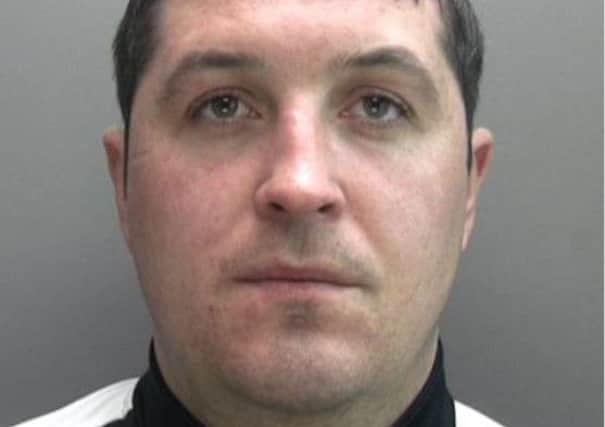Duo jailed for part in drugs gang which imported mephedrone to sell in Boston


Rimantas Zigaras and Irnas Nikunttas were involved in the operation which led to large quantities of the drug being brought into the UK and distributed.
The drugs were bought directly from a manufacturing laboratory in China and delivered to addresses in the Boston area and other parts of the UK.


Advertisement
Hide AdAdvertisement
Hide AdThe mephedrone was then divided up and distributed in Boston.
The court heard that 24 consignments of 1kg of mephedrone were delivered through courier companies with payments totalling £35,000 made via Western Union and MoneyGram.
Zigaras,34 , of Wood Lane, Isleworth, West London, and Nikunttas,25, of Freston, Paston, Peterborough, each denied conspiracy to import drugs between 1 May 2015 and 20 August 2016 but were found guilty by a jury following a trial earlier this year.
Zigaras was jailed for six and a half years. Nikunttas was jailed for five years.


Advertisement
Hide AdAdvertisement
Hide AdTwo women who played lesser roles in the drug importing operation were each given suspended jail sentences.
Geidre Vaitkute,33, of Freston, Paston, Peterborough, was given a two year jail sentence suspended for two years with a four month night-time curfew. Justyna Kulpyte, 26 , of Wood Lane, Isleworth, was given 15 months jail suspended for two years with a three month night-time curfew. Both denied conspiracy to import drugs but were found guilty by the jury.
Judge John Pini QC, passing sentence, said Zigaras had played a significant role.
The judge said “He had both operational and management responsibilities. He clearly knew the scale of the operation and was motivated by financial reward for himself.”
Advertisement
Hide AdAdvertisement
Hide AdBen Isaacs, prosecuting, said Zigaras was in close contact with the main man Donatas Liumas as well as making payments to China for drugs.
Nikunttas performed a lesser role under the direction of others.
Mr Isaacs said the two women became involved through their partners with Vaitkute being in a relationship with Liumas and Kulpyte with Zigaras. Both women transferred money which facilitated the conspiracy.
Last year sentences totalling more than 30 years were handed out to four men convicted of their parts in the conspiracy. Donatas Liumas,29, of The Flats, Paston Ridings, Peterborough; Jonas Daugintis,21, of Oakham Terrace, Haven Village, Boston; and Arnaldas Cvetkov, 30, of Joy Paine Close, Boston; each denied conspiracy to supply drugs between 1 December 2025 and 17 August 2016 but were found guilty by a jury following a trial. All three pleaded guilty to conspiracy to import drugs between 1 May 2015 and 17 August 2016.
Advertisement
Hide AdAdvertisement
Hide AdJake Louth, 35, of Tower Road, Boston, admitted conspiracy to supply mephedrone. He also admitted possession of cocaine with intent to supply relating to a stash of drugs found at his home.
Liumas was jailed for 11 years. Cvetkov and Daugintis were each jailed for seven years and four months. Louth was jailed for seven years and eight months.
Following the case, OIC DS Ian Brookes said: “The investigation was complicated by the nature of the recovered substances.
“The four kilos recovered from Louth were a substance named TH-PVP, which, although illegal, had never been tested before by our drug analysts. Other recovered substances included 4F-alpha-PHP, which had also previously never been seen before, and some which remain unidentified.
Advertisement
Hide AdAdvertisement
Hide Ad“It became obvious that the drugs must have been sourced overseas and produced in laboratories. Financial enquiries showed members of the OCG had transferred tens of thousands of pounds in cash via Western Union and MoneyGram, to unknown Chinese contacts in Beijing.”
DC Nick Hakes added: “The most significant breakthrough came when the team found evidence on a laptop of online conversations between Liumas and three illicit chemical manufacturing facilities in China. The content of these messages detailed the specific intent to purchase illegal substances and import them into the country, disguised as other materials and sent in small amounts in an effort to avoid detection.”